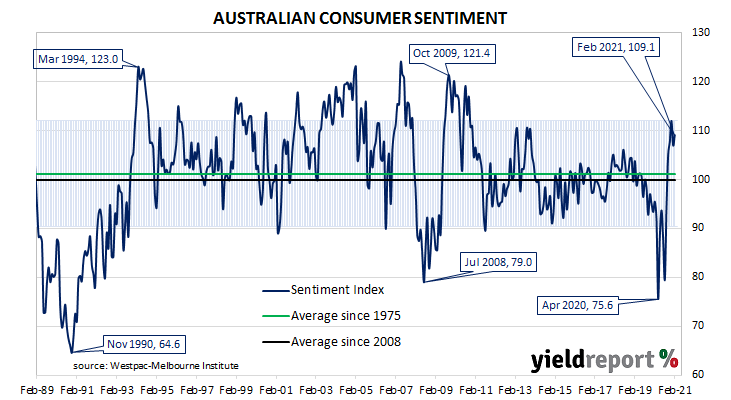Summary: Household sentiment improves in February; breaks four-month run of improvements; consumers remain “extraordinarily confident”; well above long-term average; all index components lower;
After a lengthy divergence between measures of consumer sentiment and business confidence in Australia which began in 2014, confidence readings of the two sectors converged again around July 2018. Both readings then deteriorated gradually in trend terms, with consumer confidence leading the way. Household sentiment fell off a cliff in April but, after a few months of to-ing and fro-ing, it then staged a full recovery.
According to the latest Westpac-Melbourne Institute survey conducted in the first week of February, household sentiment has improved and is at a robust level. The Consumer Sentiment Index rose from January’s reading of 107.0 to 109.1, recovering some of January’s 5 point fall.
“Recall that the December print was a ten year high so the bounce-back in February signals that the consumer remains extraordinarily confident,” said Westpac chief economist Bill Evans.

Long-term Treasury bond yields slipped a little on the day. By the close of business, 10-year and 20-year ACGB yields had each slipped 1bp to 1.23% and 1.94%. The 3-year yield remained unchanged at 0.18%.
In the cash futures market, expectations of a change in the actual cash rate, currently at 0.03%, did not change materially. At the end of the day, contract prices implied the cash rate would trade in a range between 0.030% and 0.055% through to mid-2022.

